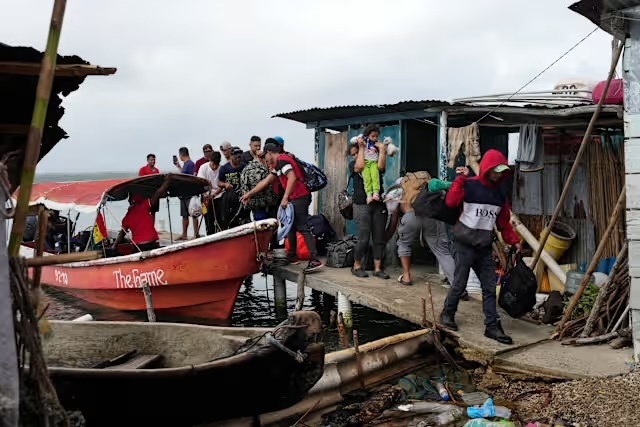Source: La Prensa, Panama

Karla Castillo thought she was making the right choice when she left Chile, where she had built a stable life over five years, to chase the dream of a better future in the United States. Now, with tears in her eyes, she says, “I repent a thousand times.”
Castillo, a 36-year-old Venezuelan and single mother of four, had work, security, and a community in Chile. But the possibility of making more money in the U.S. lured her into the treacherous journey north. She spent time in Venezuela before making her way through the Darién Gap, one of the world’s most dangerous migration routes.
“It was a bad decision,” she admits. “I wouldn’t recommend it to anyone. It’s the worst experience. You see everything—dead bodies, rapes, robberies. They grope you, they touch you.”
In Mexico, Castillo became a victim of a kidnapping attempt. Her plan was to reach the U.S. and then bring her children, but when border restrictions tightened, she found herself stranded. Now, she is on her way back—first to Venezuela, then hopefully back to Chile, where she once had a job as a nanny with “excellent bosses” who still keep in touch with her.
A Journey Fueled by Economic Aspirations, Not Asylum Claims
Castillo’s story is not unique. Many of the migrants now making the reverse journey south originally left behind comfortable lives in Chile, Peru, Ecuador, and Colombia. These were not desperate refugees fleeing war or persecution, but rather people seeking higher wages—an economic motive that disqualifies them from asylum in the U.S.
For years, Venezuelans and other Latin American migrants took advantage of lenient border policies under the Biden administration. They risked the treacherous Darién jungle and endured hardships to reach the U.S., hoping to find better-paying jobs. But with shifting immigration policies, many are now finding themselves unable to stay and are heading back south, often at great financial and emotional cost.
‘At Least I Made the Attempt’
John Orozco, a 49-year-old Venezuelan, spent six months in Mexico trying to secure an immigration appointment through the CBP One app—only to see it discontinued. He has now accepted that the U.S. is not an option for him.
“There was no opportunity, but I don’t regret it. I will never regret it,” he says. “The return has been even harder, and more expensive, but at least I made the attempt.”
Orozco is divorced, with one daughter in Venezuela and two children in the U.S. His return journey from Mexico has already cost him $900. He crossed into Panama through Paso Canoas at the Costa Rica border, navigating back roads to avoid immigration checkpoints.
In Mexico, he was able to work and save money, but loneliness weighed on him. Now, he plans to start over in Chile, where his sister is waiting for him in Medellín, Colombia.
“I’m not going to do anything in Venezuela,” he explains. “You can’t arrive empty-handed. You need capital to start over. Otherwise, you just end up working for a tiny wage that won’t get you anywhere.”
Reverse Migration Grows as U.S. Border Tightens

The flow of migrants heading north through the Darién jungle has collapsed by 94% compared to the same time last year, dropping from 34,839 people in January 2024 to just 2,158 in January 2025. This sharp decline follows stricter border controls by Panama and policy changes in the U.S.
Now, instead of migrants pouring into Panama on their way north, groups are attempting to enter from Costa Rica on their way south—retracing their steps in a painful and costly reversal.
Many, like Castillo and Orozco, are not simply returning to Venezuela, where economic conditions remain dire. They are looking to restart their lives in countries they once called home, places where they had jobs and stability before being tempted by the American dream.
A Dangerous Road Back
For those heading south, the journey remains perilous. Just last week, a boat carrying 21 people—mostly Venezuelans and Colombians—capsized off the Panamanian coast. While 20 survived, an 8-year-old Venezuelan girl tragically lost her life.
Despite the dangers and the hardships, the reverse migration trend underscores a stark reality: many of these migrants were never true asylum seekers. They were economic migrants who left behind stable lives in search of higher wages. Now, disillusioned and often in debt, they are making their way back—hoping to rebuild what they once had before they risked it all.

















